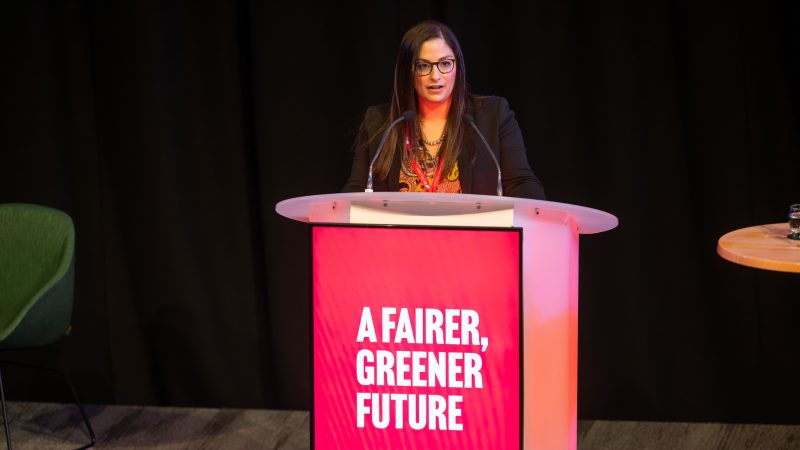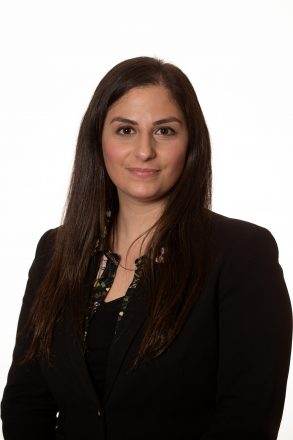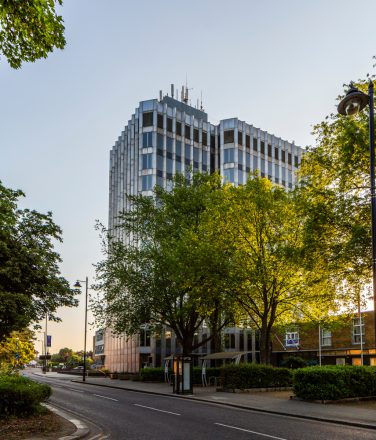
“If an election was called tomorrow, as a member of the national executive committee, I feel confident that we’d be able to deliver a really outstanding election campaign.”
Nesil Caliskan is one of two local government representatives on Labour’s ruling body. Elected leader of the Local Government Association Labour group earlier this year , she says the party machine is “in a really different place” to even a year ago and “probably the best it’s ever been”.
“Party finances are good. Organisationally, they’re in a very good place: The recruitment of key new members of staff, field organisers,” she says in an interview with LabourList.
“The party machine, the election machine, is in a really good place. And that hasn’t happened by chance. It was a very deliberate attempt by the leadership, both within the party but also obviously Keir, to make sure that the party’s ready for a general election at any moment.”
‘For many communities, Labour councils are their only hope’
Speaking the day after the autumn statement, Caliskan – who in addition to her NEC and LGA roles serves as leader of Enfield council in North London – argues that Chancellor Jeremy Hunt’s speech included some “classic Conservative tax giveaways” and “felt like it might be them preparing for an earlier election”.
Her overall assessment of the statement is damning, concluding that the measures “nowhere near” tackle the pressures facing local government, which she describes as “austerity part two”. The council leader warns that, if an estimated £4bn gap in funding for English councils is not addressed, then a “number of local authorities” may “tip over” – of all political parties.
Against this backdrop, Caliskan stresses the importance of electing Labour at a local level, declaring that “over and over again, we see examples of Labour councillors making the right choices for their communities”. She adds: “For many communities who’ve lost hope because of a national Conservative government which has abandoned them, their only hope is a strong Labour voice locally.”
‘The 2024 locals are part of the journey to a Labour government’

Discussing next year’s local elections, Caliskan says Labour “always fights to win as many seats as possible”, adding: “We’re on a good trajectory for that.”
She emphasises the significance of a successful set of local elections in the run-up to a potential autumn election next year: “It will be part of that journey to getting a Labour government. People voting Labour locally, they’re more likely to vote Labour nationally. And as fantastic as it is to win Labour councils across the country, our ability to be able to transform communities is limited without a national Labour government.”
In her role representing a London borough, Caliskan argues it has been “quite clear” in recent months that the Tories nationally and locally “want to fight an election on culture wars”, adding: “They simply don’t want to talk about the things that people care about because their record is just so poor.”
She views Labour success at a local level as an “opportunity to demonstrate what Labour can do in power” and explains that LGA Labour has been supporting councils newly controlled by the party after this year’s locals “to make sure that their campaigning really highlights the positive change that their Labour council is now making”.
Israel-Hamas conflict: ‘Our role is as local leaders’
Adding to the pressure of their day-to-day roles, many Labour councillors have recently been under intense scrutiny in relation to the conflict between Israel and Hamas, and an internal row within the party over Keir Starmer’s stance.
Caliskan reports that councillors of both Jewish and Muslim backgrounds have been “threatened”, adding that she is “more familiar” with Labour councillors as a result of her role but thinks “it will be across the political spectrum”. She highlights the “limited” protection afforded to councillors, revealing that the issue of personal safety is “regularly raised” to the LGA and the Labour Party.
Asked about the councillors who have resigned from Labour over its decision not to back a ceasefire, Caliskan says the number of resignations is “relatively small” in the context of Labour’s total number of councillors.
“We regret every resignation of course. These are very personal decisions that Labour councillors make, and it’s not to dismiss the number of councillors who have resigned for those reasons, but it is also just to put it into a bit of context.”
Caliskan says that councillors “don’t commentate on international relations or geopolitics in the way that perhaps some people might want us to”, and that their “role is as local leaders”, supporting community cohesion and their residents.
“Working with the police, our stakeholders, faith groups, schools. There’s a lot that we need to be doing to make sure we’ve got healthy, cohesive communities.”
‘Unbelievable racism followed my election as council leader’

Asked what first motivated her to get involved in politics, Caliskan recalls community meetings when she was around the age of 14 as “quite a seminal moment” in galvanising her to mobilise against the far-right.
She said the English Defence League was “quite present” in Enfield at the time, and there were fears the borough was the far-right’s “next target” after the British National Party made gains in Barking and Dagenham.
The council leader also highlights that, for much of the New Labour period, Enfield council was led by the Conservatives, who she claims “abandoned swathes of the communities”. She says: “It just reaffirmed to me that you have to win as a political party, as Labour, at every level. There’s no point getting a national government if you don’t have a local Labour council.”
She describes the reaction to her being elected council leader in 2018 – the borough’s first female leader and its first from a Muslim background – as a “mini-earthquake” and a “period of unbelievable racism”. She recalls facing “a combination of sexism and racism” following her election, adding: “The racism was harder for me to stomach, because I’d never really experienced it, if I’m honest with you.”
‘No one thought a council leader would be taking maternity leave’
But Caliskan says becoming LGA Labour leader earlier this year was a “different experience” and “more celebrated”, with her initial days in the role being “far more positive”.
“I’m really humbled at the support,” she says. “And also the opportunity to meet so many council leaders and councillors from across the country who come from real different backgrounds and demonstrate the richness of the Labour Party and what we can offer to communities.”
She has been reported to be the first woman and the first person from an ethnic minority background to hold her LGA role too, though she says she “can’t believe” it is the case.
But she highlights barriers women continue to face within politics too. Caliskan will shortly be going on maternity leave, but explains there appears to be “no template” nationally for this as a council leader, with challenges around issues like ongoing legal responsibilities despite being on leave.
“Whilst there are policies in place to support councillors who might want to take some time as maternity leave, it turns out that actually nobody thought a council leader might be in that position.”
She sees some positives however, highlighting her “incredibly supportive” local Labour group and saying her “great cabinet” will be able to step up.”Councils are run not by one person, but a collection of people.”




More from LabourList
Economic stability for an uncertain world: Spring Statement 2026
‘Biggest investment programme in our history’: Welsh Labour commit to NHS revamp if successful in Senedd elections
James Frith and Sharon Hodgson promoted as government ministers